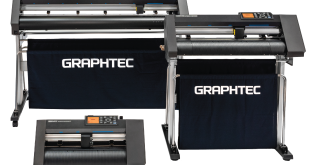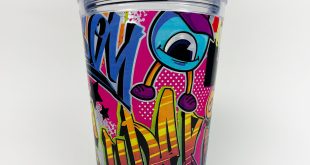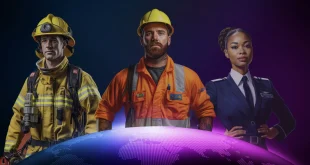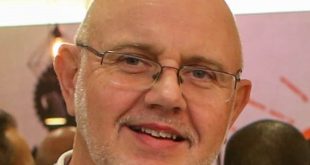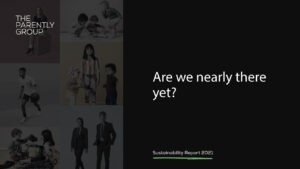
In the autumn last year, The Parently Group, released its first sustainability report called ‘Are we nearly there yet?’ Managing director of The Parently Group, Kathryn Shuttleworth, explains more.
Q. First of all, can you tell our readers what The Parently Group is, for those who may not be familiar with this name?
The parent company to David Luke was formed in 2016 following a management buyout of the founders, David Burgess and Adrian Luke, to ensure the business remained owner-managed.
The new management team have grown brands alongside the school uniform part of the business, and as we are all parents of young kids, we are really keen to build a portfolio of brands that deliver kit and clothes for kids whether they’re at school, sports or play.
David Luke remains our original and flagship brand, but with growth of Juco for sports and activewear, and Grass & Air for outside play and fun, the overall group rebrand at the beginning of 2020 to The Parently Group, seemed like a great way to deliver growth and share focus across all our brands.
Q. You’ve just released your first integrated report as a group, called ‘Are we nearly there yet?’ In a nutshell what is the report about?
Our impact report covers how we are as an employer and the culture we foster; the environmental considerations and sustainability passion that exists within the organisation; providing transparency of our supply chain and the ethical approach with our partner factories; how we work within our community to support localised impact; and how we are innovating and thriving across each of our brands.
The title is there to clearly say that this is a journey, and that the pursuit of positive change and action is not something that ends but continues with each generation. The purpose of the report was to inspire pride in our team and key stakeholders, and to clearly demonstrate how the business is building across its brands. We are committed to manufacturing durable and ethical consumer products, that are loved by our community of stockists and resellers, so that they can share in the pride and see the benefits of supplying brands that become better known for the positive impact they can have.
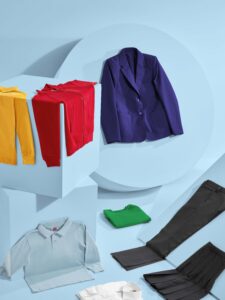
Q. What do you hope to achieve through the publication of this report?
We always seek to lead the way in the markets we operate in, to bring ideas and inspiration and take action. Following what we have just been through as a society and looking at the way business needs to demonstrate its worth beyond just financial performance, we wanted to produce something that would showcase all the great things we are doing, that are having a positive impact.
Integrated reports for financials and ESG are going to become a regulatory requirement for large PLCs, and so we wanted to lead the way with this approach for smaller business, showing how valuable it is for our people and stakeholders, to see and feel proud about the contribution we are making and to the wider community and environment.
Impact has to be about the things you do, not the things you say, and this report really shows the positive action we are taking in so many areas.
Q. What have been the key highlights of The Parently Group’s sustainability journey over the last 12 months?
Sustainability has been a huge part of what we do for over 12 years, but the last 12 months has brought a brilliant energy transition at our site, when we had over 1,000 solar panels installed on our roofs, saving around 25 tonnes of carbon a year.
Our team engagement has grown, with our Green Team working on various projects to improve the practices in the workplace. And with now over 70% of our product range containing recycled polyester, our product evolution continues with both Grass & Air and Juco ranges also using this more sustainable fibre. David Luke launched a brilliant campaign during the summer called Re:Uniform, promoting ‘Love it, Fix it, Swap it’ for extending the life of uniform and working with the Ministry of Craft to support on easy fixing tutorials and how to upcycle your uniform, with a brilliant How To guide on converting a school sweatshirt into a PE Bag.
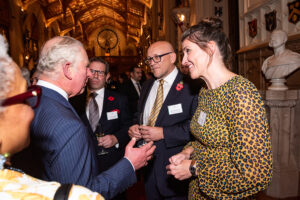
We were delighted to achieve the honour of The Queen’s Award for Enterprise in Sustainable Development in 2020 and this year I got the chance to meet Prince Charles, while COP26 was on, and talk to him about what we have achieved. He shared our views on extending the life of clothes and spoke about us returning to being a thrift nation where we make things last. The recognition of our work continued with COP26 asking us to appear in a video for their #onestepgreener campaign, to talk about how SMEs can take simple actions in their businesses to become more sustainable.
Q. What trends will drive schoolwear and childrenswear fashions and product development in 2022? Why do you think this is?
We see that recommerce will gather pace, as children tend to grow out of their clothes before they wear them out.
Online businesses such as Depop have shown that young people are very open to this market and so it makes sense for product developments to focus on garments that can retain value for a second life, rather than just be thrown away.
In uniform, we expect this to be even more marked since the publication of the Education (Cost of Uniforms) Act 2021, which states that all schools under the Department for Education, must make second-hand uniform available. This means that choosing uniform that will be durable to last that long will be important, as will school stockists being able to support schools provide this service.
We will be expanding our Re:uniform initiative and developing further support for school stockists, as part of our David Luke Tender Academy, so retailers have all the tools they need to compete and win school tenders, with great added value they can bring.
Q. Do you think there is more the industry could be doing to improve its sustainability credentials as a whole?
Clothing has such a huge impact environmentally, and the fast-fashion model has driven consumption to very high levels over the past few years. There is likely to be change coming, that will take some time to transition, but the industry needs to get used to new models in readiness. Technology to recycle fibre back to fibre still seems quite far away.
Recommerce and rental are growing in luxury fashion or for clothing that is worn infrequently. So solutions to improve the environmental impact of items that are worn regularly, like uniform, will need collaboration and cooperation in their development. End of life solutions would seem like a good place to start.
Q. What does 2022 have in store for The Parently Group and sustainability?
There are lots of packaging initiatives coming, as we get ready for the plastic packaging tax that comes in from April. We will continue to expand the Re:uniform campaign and look forward to talking more about our brand new repair workshop that is coming soon.
And there will be more investments in our working environment, to help increase cycling and EV adoption, and create a great outdoor space to keep improving our working environment.
Because creating a sustainable future needs to be about being inclusive and enjoying what we do – otherwise, what are we all doing it for?
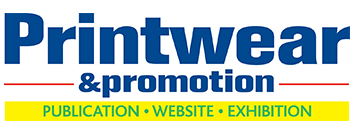 Printwear & Promotion The Total Promotional Package
Printwear & Promotion The Total Promotional Package
